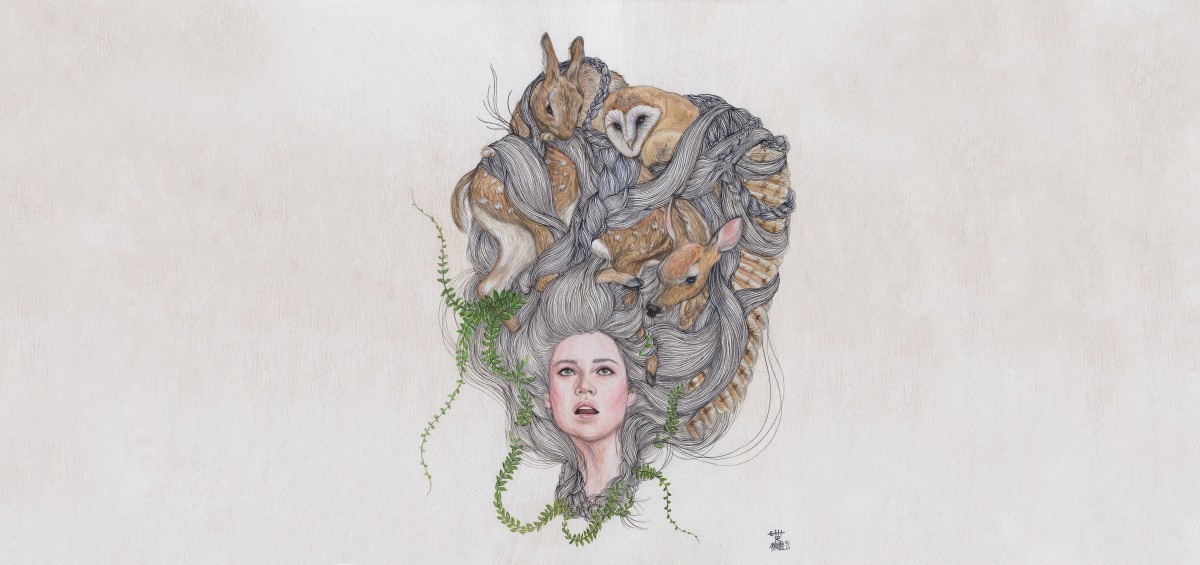It took moving out of Appalachia to truly appreciate the richness of the culture I was raised in.
I moved from my hometown of Pikeville, Kentucky, to attend the University of Louisville and study Political Science in 2018. I didn’t know then that other people weren’t privy to the same folksy life lessons that I would receive unsolicited from elders and peers.
Those lessons had been repeated ad nauseum since who-knows-when by Central Appalachian parents and grandparents. They make sure to instill, or at least attempt to instill, a special brand of Appalachian values in the younger generation through colloquial phrases and sayings that stick with us.
When I left the door open as a child (and sometimes even now), I would often be asked if I was “raised in a barn.” When people aren’t exhibiting common sense or aren’t the best decision-makers (even if they are highly intelligent), I always heard people say they don’t have “good walking-around-sense.” I was always a fan of the self-explanatory phrase: “An ounce of pretension is worth a pound of manure.”
But my favorite has always been the ultimate summary of Central Appalachian humility: “Don’t get above your raising.”
I can’t pinpoint where I heard the phrase for the first time simply because I have heard it all of my life. I remember my late maternal great-grandmother, my Granny Osborne, always saying it. She probably had the thickest accent of the whole bunch of us and made the most beautiful quilts. I have heard my mother use it to talk about politicians, saying that they have clearly “gotten above their raising.”
Ricky Skaggs, the great bluegrass artist, even had a song about it — the lyrics a catchy testament to the time-tested warning:
Don’t get above your raising
Stay down on earth with me
Now looky here gal you better be yourself
And leave that other stuff on the shelf.
You’re country baby
That’s plain to see
Don’t get above your raising
Stay down on earth with me.
For my family, the phrase is about status. They use it to describe people, like those politicians, that have an ego problem and have forgotten where they came from. But even after years of repeatedly hearing this kernel of wisdom from my own family, I still found myself victim to it.
When I made plans to move out of Appalachia for college, I was once again warned by my concerned mother not to “get above my raising.” In Louisville, I experienced some culture-shock, but soon found myself travelling home to visit speaking with a slightly-less-pronounced accent (even though it would soon come back with a vengeance after a few weeks in Eastern Kentucky). I still often drop my accent when ordering food or relaying important information over the phone for ease of communication, but it always feels inauthentic.
After disappointing my mother several times by a noticeable lessening of my accent, I felt ashamed of myself. I was also angry that my accent and the geographic location of my home had anything to do with the degree of respect that people would show to me. It was then I realized I had started to get above my raising, and I had to work to reclaim my Appalachian identity. That’s part of what the phrase holds for me today.
When I asked a few native Central Appalachians what it means to them, I was met with mostly pride and reverence for the “old saying.”
“My remembrance of this was my mother quoting a local doctor who quipped that, ‘Young people who’d gone North for work when returning home for visits talked so proper that you can’t understand a word that they say,’” Nancy Cox, 70, of Somerset, Kentucky, recalls. “She would imitate them in an exaggerated Northern brogue, something between the Bronx and Boston.”
Russ Cassady, the regional editor for Appalachian Newspapers, told me that much of the world spends time and effort on reaching “authenticity” – a quality older Appalachians can quickly assess of anyone. One of the cardinal sayings among hillbillies, he says, is “putting on airs,” or acting like you’re better than those around you.
“The thing about living in such a close culture is that you’ll find that you can paint all the false faces you want, eventually someone who knows you will call you out on it,” Cassady, 42, adds.
Cassady captured why I wholeheartedly appreciate the phrase: One of the things I love the most about Appalachians is our appreciation for authenticity. This bleeds through in our politics, music and just about everything we do.
Humility is part of the authenticity that we value. It’s something we’re taught growing up from our elders and “Bible Belt” Sunday school teachers. My parents and grandparents were not afraid to call me out when I attempted to “drop my accent” to disguise my mountain heritage or to simply remind us of our humble beginnings in times of success. Familial and cultural pride are admirable qualities instilled in the Appalachian people, and when we see Appalachian refugees or traveling Appalachians trying to downplay or even disowning their roots, we rightfully shame them for “getting above their raising.”
But the phrase isn’t limited to describing Appalachians, anyone can “get above their raising” and when we do, we forget to walk in humility. We present a false-self and are more worried about how others perceive us than our own personal values. In my own life, I work to never get above my raising – I make an active effort to take pride in my Appalachian and Asian roots – and I believe it’s a cultural value we should work to preserve in our region. We should elect leaders that strive for this, teach our children this, and keep this mentality at the forefront of all we do.
When we are inauthentic, we stray from the path of self-actualization, which is not conducive to living a fulfilling life and damages our sense of self in the long-run. When we work to fulfill other people’s idea of what we should be above what we are, we not only get above our raising, but we seek to please others at the expense of rejecting a part of ourselves. While popular culture may encourage the promotion of our lives as being more, as being bigger — especially in the era of social media — in order to live a fruitful life, to be a good leader or to simply be happy, the secret ingredient is to not get above your raising.
“I always heard it from my mom and dad,” 22-year-old Megan Thacker of Pikeville, Kentucky, tells me about the phrase. “It means to me that no matter where you go in life, don’t forget your manners, don’t act like you’re better than anyone, and don’t forget where you came from.”
Truly, I believe that the worst thing an Appalachian — or anyone for that matter — can do is “get above their raising. And if you ever do, well then, bless your heart.
Ariana Velasquez is a 2021 graduate of the University of Louisville where she received her BA in Political Science and will be attending the J. David Rosenberg School of Law at the University of Kentucky in the fall of 2021. She is a 22-year-old Appalachian freelance-journalist, columnist, poet, musician, activist, and organizer from Pikeville, Kentucky. Her work has appeared in the Appalachian News-Express, the Lexington Herald-Leader and Forward Kentucky.



